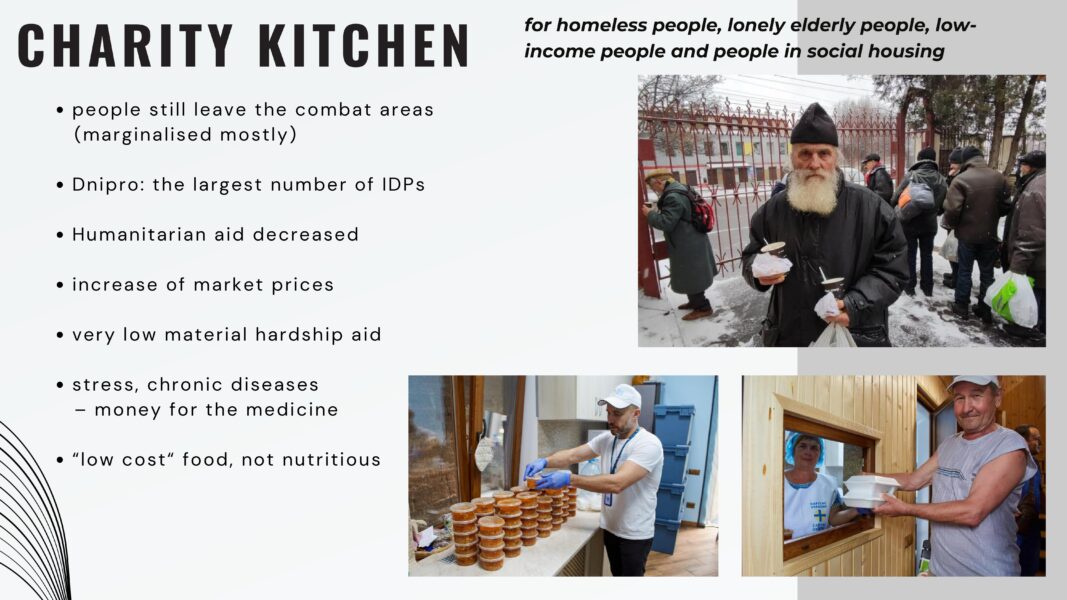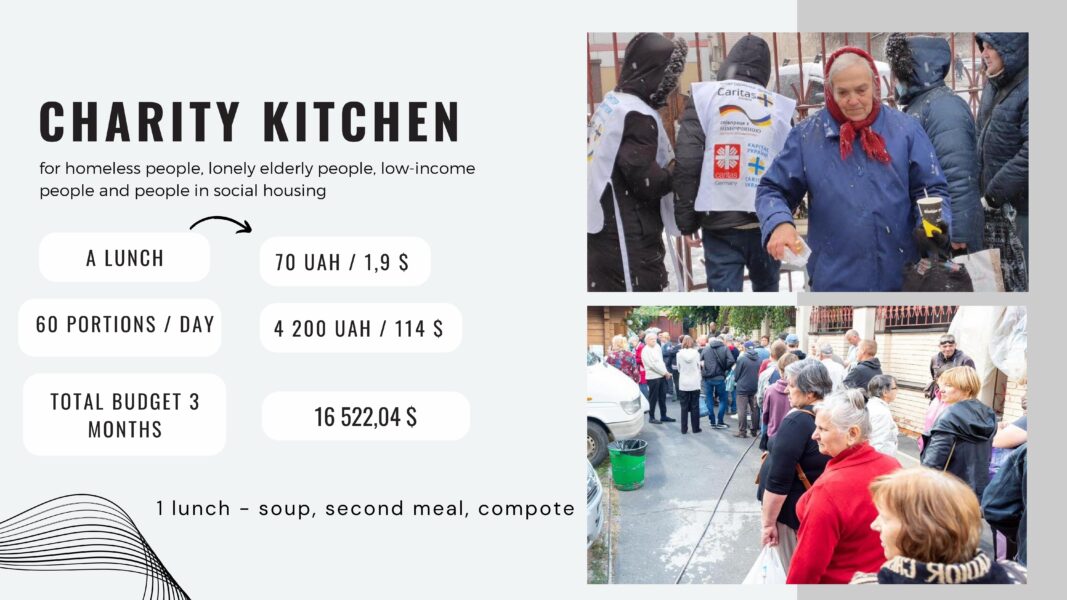
Since the beginning of the lawless invasion of Ukraine in February 2022, we have been standing in prayerful and charitable solidarity with the people of Ukraine.
In the summer of 2023, we made contact with Caritas Slovakia, and parish leadership has decided to channel our aid through the Slovakian Catholic agency.
Our most recent focus of support was a Charity Kitchen for the food-insecure in the Dnipro region of Ukraine.
Thanks for your prayers and concrete actions!



Spiritual Accompaniment During Time of Invasion
Continuous: mention of Ukraine in intercessions, messaging with signage and colored lighting
February 24 annually: Memorial Mass for victims of the invasion
as needed: Memorial Masses to mark milestones

